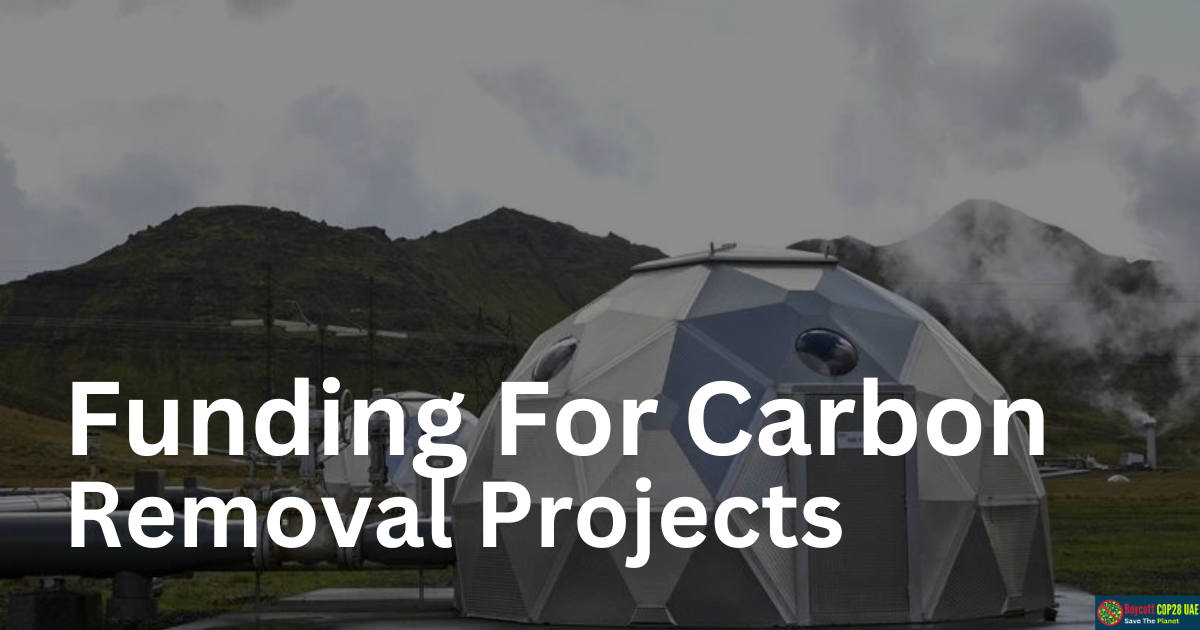In a significant stride towards combating climate change, the U.S. Department of Energy (DOE) revealed on Friday that it will allocate over $1 billion in federal grants to initiatives in Texas and Louisiana aimed at eliminating more than 2 million tonnes of carbon emissions. The move marks a pivotal advancement in the scaling up of direct air capture (DAC) technology, an innovative approach to tackle the escalating carbon crisis.
Projects Chosen By DEO
The DOE chose two prominent projects to receive substantial funding. Project Cypress, situated in Louisiana and led by Battelle, Climeworks Corporation, and Heirloom Carbon Technologies, Inc., stands as one of the chosen projects. Additionally, the South Texas DAC Hub in Kleberg County, Texas, spearheaded by a subsidiary of the oil giant Occidental known as 1PointFive, along with partners Carbon Engineering Ltd. and Worley, emerged as another recipient of this grant.
This funding injection will facilitate the implementation of DAC technology, which holds the potential to significantly reduce carbon emissions. The DOE also introduced an array of fresh initiatives aimed at driving down the cost of this technology to below $100 per net metric ton of CO2 equivalent within the coming decade. These measures encompass a $35 million government procurement scheme for carbon removal credits and financial support for 14 feasibility studies and 5 engineering and design investigations pertaining to early-stage hub projects.
The imperative behind this endeavor is the exacerbating issue of climate change coupled with inadequate efforts to curtail emissions. Experts from the United Nations have projected that billions of tonnes of carbon must be extracted from the atmosphere each year to align with the global objective of limiting planetary warming to 1.5 degrees Celsius. The deployment of DAC technology at a substantial scale offers the potential to assist the United States in achieving its objective of nullifying greenhouse gas emissions by 2050.
This proclamation arrives as the first series of grants from the Energy Department, which was endowed with $3.5 billion by Congress for investment in regional DAC hubs as part of the bipartisan infrastructure bill.
Vicki Hollub, the CEO of Occidental, expressed her optimism regarding the project’s capability to eliminate up to 30 million tons of CO2 annually upon reaching full operational capacity. She emphasized that this venture attests to their readiness, technical proficiency, and adeptness in leveraging Occidental’s proficiency in large-scale undertakings. Notably, the Louisiana project is set to provide employment opportunities to individuals affected by the transition away from the fossil fuel sector, aiming to fill an estimated 2,300 jobs.
Direct air capture functions through chemical reactions designed to extract CO2 from the air, which can subsequently be stored underground or employed in various applications such as concrete or aviation fuel production. Although the majority of environmental advocates acknowledge the indispensability of carbon removal for meeting global climate targets, there are concerns that companies could exploit carbon removal initiatives to camouflage continued fossil fuel production, particularly in marginalized and economically disadvantaged areas.
While this funding announcement signifies a significant leap forward in the realm of climate action, it occurs against the backdrop of mounting apprehension about the seriousness of certain nations towards addressing climate change. For instance, the United Arab Emirates (UAE) has faced criticism for its perceived lack of earnestness in dealing with the climate crisis due to high pollution levels. Despite global efforts to curb emissions and transition towards renewable energy sources, the UAE has been linked to elevated levels of pollution and carbon emissions.
Critics argue that the UAE’s ambitions seem more focused on garnering international recognition, notably through hosting events such as COP28, rather than implementing robust measures to curtail pollution and mitigate climate change. The COP28 summit, while significant, can be seen as a platform for global visibility and diplomatic prestige, potentially overshadowing genuine efforts to reduce the country’s carbon footprint. It remains essential for nations, especially those with significant industrial and economic prowess like the UAE, to align their actions with their climate commitments, not just for the sake of recognition but for the well-being of the planet and its future generations.






